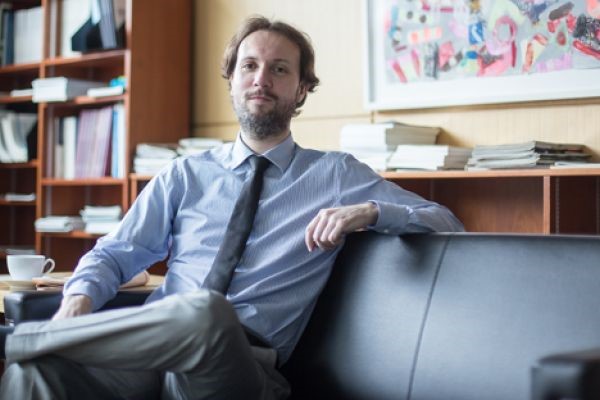Prof Nicolas Jacquet

Feature on Nicolas L. Jacquet, Associate Professor of Economics
Associate Dean (Postgraduate Research)
School of Economics, Singapore Management University
Disentangling the cost-of-living crisis
Between COVID-19 and the Russia-Ukraine war, it is difficult to pinpoint the actual causes of soaring prices and possible recession across the world. Associate Professor Nicolas Jacquet, an economic theorist who specialises in labour, macro and monetary economics, discusses market forces and actions of the central bank dating more than a decade to uncover the real reasons behind the cost-of-living crisis we are witnessing right now.
As financial and real estate markets brace themselves for tough times ahead and inflation angst continues to grip consumers worldwide, most would blame the COVID-19 pandemic and the ongoing Russia-Ukraine war. However, some economists are arguing that the roots go much deeper and reach as far back as the 2008 Lehman collapse. Associate Professor Nicolas Jacquet details how a financial crisis that happened more than 10 years ago and the responses of central banks linger in today’s economy.
“The high inflation we are currently experiencing is certainly due, at least partly, to the supply chain disruptions arising from the pandemic or the war in Ukraine—but it could also be a hangover effect from central banks pumping a lot of liquidity into the economy since the 2008 collapse of the Lehman Brothers,” says Jacquet. Inflation tends to naturally occur after central banks inject a large amount of liquidity into the economy. He adds, however, that this did not occur in the aftermath of the financial crisis, which begs the question: “Why is it only happening now?”
One plausible explanation is that the liquidity went into specific asset classes, rather than the goods and services that households spend on thereby bumping up the asset markets. Jacquet explains, “When the central banks didn’t observe rapidly rising prices at that time, perhaps they felt that they could continue with their liquidity injections. This probably went on for far too long, and now we are paying the price for it.”
Getting to the bottom of this phenomenon is crucial, according to Jacquet, “because we now know that inflation can take a long time to show up after a central bank injection and it tends to be difficult and lengthy to tame; we must therefore be more prudent.”
Through the lens of an economist
As a theoretical economist, Jacquet’s research aims to solve problems in monetary and labour economics using mathematical models. For instance, this can be applied in labour economics to understand why workers transition between jobs and the obstacles hindering workers from finding suitable jobs efficiently.
He explains, “The beauty of economic models is that we can apply them to a wide range of scenarios to answer various questions,” adding that although many great minds in the past have been looking at these same issues, we now have the opportunity to see them through a completely new lens. Jacquet believes that with each unique perspective, the research question or phenomena can be better understood allowing us to find solutions for pressing economic and societal challenges.
Both a teacher and a learner
When asked about his role as an educator, Jacquet says that the classroom is a surprising source of new insights. He explains, “Because we are active researchers as well as teachers, we can share with our students the latest developments in the field and alternative perspectives that deviate from the standard textbooks.” He adds that new undergraduate students can question the basic elements of what is taught, forcing the teacher to rethink frameworks that might otherwise be taken for granted.
For this reason, Jacquet aims to have the conversation flow both ways. He says, “This makes learning more enjoyable for the students; at the same time, I’m learning from them as well.”
Employees shape the future of work
Another area experiencing new trends and changing assumptions is the labour market, where the pandemic has pushed many people to rebalance their life priorities. While it is not certain that these are permanent shifts, Jacquet says it is clear that companies need to adapt. “Workers are in short supply so the bargaining power currently lies with them; with new desires, firms will need to adapt and offer employees the flexibility they want.”
When thinking of how governments and firms might respond to these changes, returns to the long-term perspective, preferring to wait and observe rather than gaze into a crystal ball. Economics is very good at explaining what's happening, but not so good yet at predicting what might happen. Amid our response to the pandemic, for example, it is hard to predict whether workers’ current desires reflect what they will want in the future.
